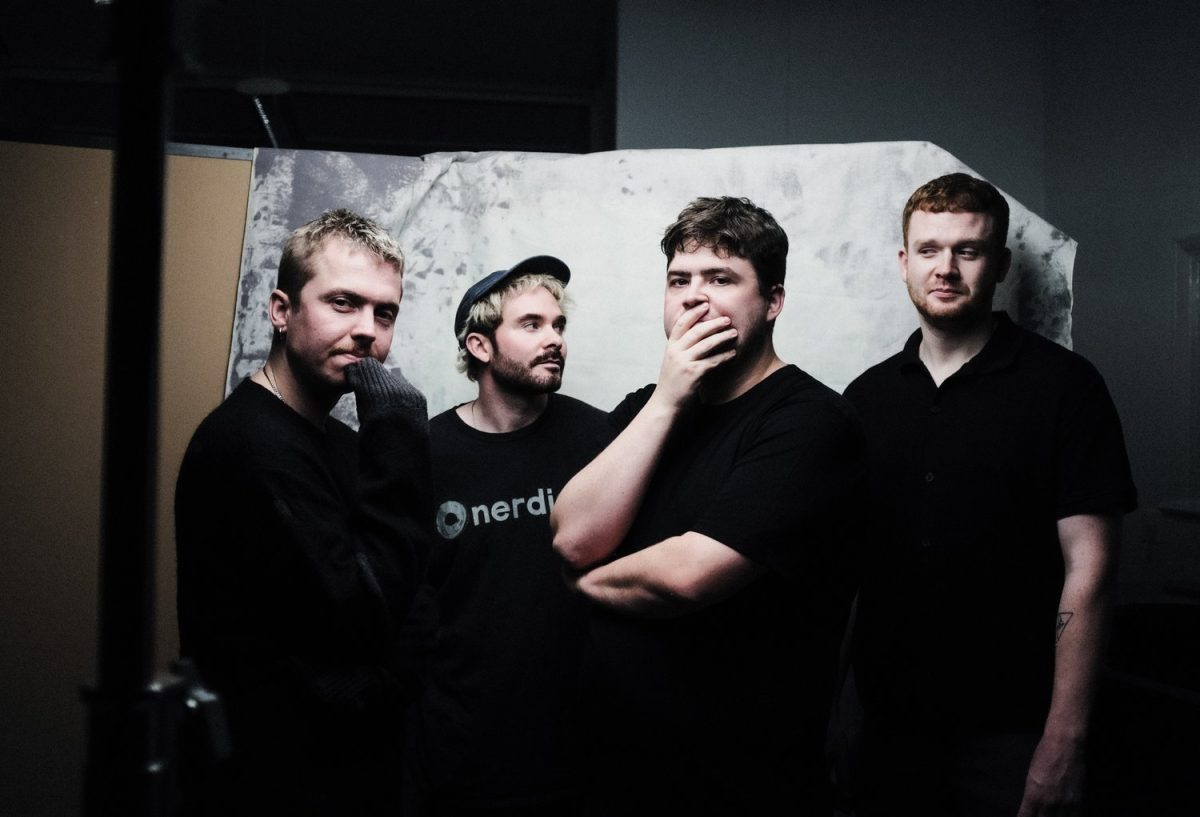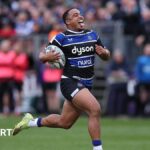Beginning with guitar-based shoegaze as artistic as Mogwai, My Bloody Valentine, and Sonic Youth magnificently displayed on their acclaimed debut album, Hull’s bdrmm swiftly proved they were no slaves to genre. Three years after their debut, I Don’t Know was a cinematic follow-up showing zero signs of second album syndrome, only growth in its varied songwriting and immersive electronics.
Now, Microtonic is another emphatic shift in sound. Finding creativity in ambient, dance music and minimalism, the band’s third album is evidence of their ability to craft interesting experimental music without a reliance on six strings.
Guitarist and songwriter Ryan Smith discusses their history so far, solo ventures, and the making of the album.
~
LTW: You’ve released three albums and non-album material since your debut single came out in 2018 – does this feel prolific for you, or routine by now?
Ryan Smith: It definitely feels routine but that’s because it feels like we’ve not stopped since we started. But this one feels a lot different because, one, I can remember the whole recording procedure and, two, there was so much more confidence in writing it.
When we first started, we were just doing it because it was fun, which it still is, but there wasn’t as much thought going into it. It was a case of ‘let’s keep writing and recording’. We’re trying to direct it a little bit more, and be more streamlined with the concepts. We’ve not changed. The music has got bleaker, but we’ve got happier.
How has your creative relationship with Nave Studios and Alex Greaves grown?
He’s grown so much as a producer. The first album was brilliant but I think all of our influences have branched out so far and whenever we record with Alex our tastes are so similar that it’s like we’re all listening to the same thing as we’re developing. So we all met at a similar mindset when the album started. We hit the ground running, which was a blessing because with the last record there was a bit of uncertainty about where we were going, but with this one, it felt like we all knew the direction we wanted to go in, and we had the confidence to do it.
Since releasing album two, we just went straight back into the studio. I think we went back in October and the album was released in June, so we didn’t give him time to rest.
Who were some of the electronic or shoegaze-cum-electronic artists present in your minds during the making of Microtonic?
We found a lot of inspiration from guitar bands like Portishead. Massive Attack, they were a huge influence, but we were also listening to all the Warp stuff, I was listening to a lot of Actress, Andy Stott, a lot of textural, bass-driven electronica, and more abstract stuff. Just a lot of minimalist experimental stuff like Steve Reich.
The guitars are the most subtle they’ve been on a bdrmm album. Is this a result of prioritising the new, electronics-focused sound or due to modifying the guitar parts via pedals and post-production?
There’s definitely a lot of manipulation, a lot of sounds that will be a guitar which sound like something completely different. It was just trying to use the guitars more tastefully, because, with the first records, it was just no holds barred shredding, which was so much fun, but it can very easily start to sound very wanky. So it was a case of trying to blend the guitar elements and the electronics so that it works together, rather than writing a shoegaze album and then adding stuff on top of it.
In a similar vein, how easy is it to be so ego-free in terms of abandoning the guitars and forgetting about commercial or critical appeal and self-critique?
We’re all open-minded and we don’t think about what anyone’s going to want, or the critics either. We won’t think, when we’re writing an album, ‘what can we write to fit in with what’s happening now?’, it’s more like, ‘what are we able to write that’s interesting to us?’
And if people like it, if critics like it, that’s mint. But at the end of the day, we wouldn’t feel proud of something knowing that we’ve just tried to write a hit. If it comes organically, then you’ve won, but if you go out of your way to trend, then that’s just a cop-out.
How did the influences of David Lynch and Franz Kafka manifest onto the album?
A lot of the songs were written after I had a lot of insomnia and I was continually waking up at five in the morning and thinking, ‘I can’t just lie awake in bed’, so I went downstairs and put Eraserhead on. After that, I got so inspired that I started writing Clarkycat, because of the whole atmosphere of the film, and I wanted to make quite a dark, textural piece.
Then I just thought, ‘why I don’t keep watching David Lynch films at five in the morning?’, so I went on to watch The Elephant Man the day after, and then Dune – thank God I didn’t write anything based off that film. So I was doing that throughout the writing period. I think he stepped into the writing process quite heavily, and a lot of his artwork is brilliant as well. I watched a documentary about his artistic process during that period; he was one of the good ones.
I was trying to get into the mindset of dystopian universes. When I was in school I did BTEC performing arts, and I remember watching the live adaptation of it, which popped into my head. So I re-read it and a lot of the ideas stemmed from the end of Gregor’s life: like ‘the money saved has gone, the vanished divorcee’ was based on when his sister spends the money completely.
Did the album’s new sound bring with it a new style of writing?
The album was kind of half-and-half. I did half and Jordan wrote the other half, so there was a lot of me, Jordan and Alex sending parts to each other. I think I’d written a drum loop, which I sent to Jordan, which he then fleshed out and it became one of the tracks on the album.
There was a lot of that type of collaborative approach. The way things like Ableton work now, you could collaborate with anyone.
How did the album’s collaborations, with Working Men’s Club frontman Sydney-Minsk Sargeant and Nightbus vocalist and songwriter Olivesque, come about?
The track with Olive, she toured with us last year, and her voice is just unbelievable. Obviously, similar vibes in our music. When we were thinking of trying different things, collaboration had always been one of the ideas, so it was a good opportunity to bring friends in. We sent In The Electric Field to Olive without lyrics and she came back with the most flawless take ever, that could’ve essentially been on the record.
With Syd, again, very similar themes in musicianship and lyricism, but there was a gap in the beginning of the intro and we’d always thought of him as someone we’d approach if there was a chance for collaboration, so that felt perfect.
What direction has your solo electronic project gone in?
I’ve been trying to do a bit more techno, I had a show with Acid Klaus where I took a TV-3 and a Behringer Reg that’s a bit like a modular percussive thing and just jammed out for half an hour. It was great, it felt quite freeing – but stressful as well – to do those things separately. Working with the band will always be good and it’ll always be there, but it’s great to have something you can be completely free in.
Is it easy to draw a line between the two, in terms of writing?
Yeah, definitely. Whenever I’m doing stuff by myself it will always get incorporated into bdrmm, but the solo stuff is a breath of fresh air away from the cogs of the music industry. With an album campaign you’re waiting six months for it to come out, but with this I can just pop down to the local and wig out for half an hour, so it’s a bit more fun.
~
Listen to the new bdrmm album.
Follow the band on social media.
Interview by James Kilkenny. Read more of his articles for Louder Than War.
Photo supplied
We have a small favour to ask. Subscribe to Louder Than War and help keep the flame of independent music burning. Click the button below to see the extras you get!
Read article in full at source
Stay informed about this story by subscribing to our regular Newsletter


